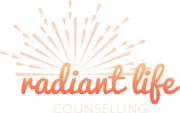16 Days of Activism – a Campaign Against Gender-Based Violence
Content warning: may be triggering for those who have experienced or know someone who has experienced intimate partner violence, sexual violence or gender-based violence. If you are experiencing abuse, contact VictimLink at 1-800-563-0808.
This post is part of the 16 Days of Activism Against Gender-Based Violence, an annual initiative committed to ending violence against women worldwide. This post gives an overview of the campaign as well as information about abuse and gender-based violence.

December 6 is the day that 14 women were murdered at the École Polytechnique in Montreal in 1989. An armed gunman entered the technical institute and separated the women from the men, opening fire while yelling “You are all feminists”. This date was established as a National Day of Remembrance and Action on Violence Against Women. It is a day of grieving for all of the women whose lives have been taken in gender-based violence, as well as a day of action to work to end it.
The women who died in the Montreal Massacre were:
Geneviève Bergeron
Hélène Colgan
Nathalie Croteau
Barbara Daigneault
Anne-Marie Edward
Maud Haviernick
Maryse Laganière
Maryse Leclair
Anne-Marie Lemay
Sonia Pelletier
Michèle Richard
Annie St-Arneault
Annie Turcotte
Barbara Klucznik-Widajewicz
Their names are commemorated in a memorial in Vancouver, as well as other places in Canada. I went to the memorial this morning to hold a moment of silence for them, as well as for the countless others who have no memorial, and whose names have not been remembered – in particular many of the murdered indigenous women, girls and 2-spirit (MMIWG2S).
One of the foremost experts on grief, Elizabeth Kubler-Ross, assigned 5 stages to grief – anger, denial, bargaining, depression, acceptance. We now understand that these are not stages but a swirling cauldron of emotions that can pop up at any point as well as in combination. For me, the emotions I experience in relation to hearing about ongoing gender-based violence swings from disbelief and anger (that it continues to be normalized, forgiven, and even accepted in many circumstances) deep sadness for those that have felt the loss personally and fear for those who are currently at risk, deep gratitude for the organizations and individuals working to change this.
Before I was a therapist, I was a woman in technology – oftentimes the only woman in the room. I have considered myself a feminist since I understood the meaning of the word and there have been many times in my life when I have felt the anger and disgust and power imbalance from men. I consider myself fortunate and am committed to the work of supporting the end of gender-based violence – through my work as a trauma-informed and anti-oppressive counsellor, and through some of the ways I’ve outlined below.
These 16 days of holding space for gender-based violence are heavy, and it can be hard to hold any one part of it without feeling like the floodgates have opened. Take care of yourself as you hold this information and emotion, sit with what you can, and when you’re ready to act, check out some of the ideas below.

Action: What can you do to help?
- Acknowledge the problem is a social responsibility and has roots in systems of oppression.
- Understand that the problem is pervasive – nearly half of women (44%) experience some form of intimate partner violence in their lifetime (source), so likely you or someone you know is affected.
- Understand that the risk is not equal – certain populations (young women and girls, Black and racialized women and girls, Indigenous women and girls, 2SLGBTQI+, gender non-binary individuals, women in Northern, rural, and remote communities, and people with disabilities are at significantly higher risk of experiencing GBV (source).
- Know what to look for (the types of GBV, the red flags) and how to help if you see it.
- Listen without judgement if someone is telling you about their experience.
- Dig deeper:
- Familiarize yourself with these resources
- Watch a film. The National Film Board of Canada has several and Smallest Steps is a new documentary that follows four women on their journey to end VAW
- Listen to this Montreal Massacre speech by the late Andrea Dworkin
- Share what you’ve learned and amplify related information:
- the UN Women social media dashboard has great content free to use
- Educate youth
- Educate men
- Donate:
- The Surrey Women’s Centre and BWSS have several programs and ways to donate, including contributing to free counselling as well as the holiday Angel tree program that gives gift cards directly to survivors of gender-based violence
- The Downtown Eastside Women’s Centre provides meals, shelter, clothing and other basic necessities to women in the DTES
- Other organizations I recommend and support are: The Moosehide Campaign – an indigenous-led initiative against GBV, Rise Women’s Legal association – providing legal services, Atira – Vancouver shelter for women fleeing GBV, the Canadian Women’s Foundation, the Pacific Association of First Nations Women (PAFNW), the Native Women’s Association of Canada (NWAC)
- Many shelters are in need of supplies and donations such as toiletries and coats, especially in the colder months
- Volunteer
- Many organizations need help, either in an ongoing capacity, or around events and certain times of the year. Reach out to one near you and see what you can do to help.
What action will you take?



